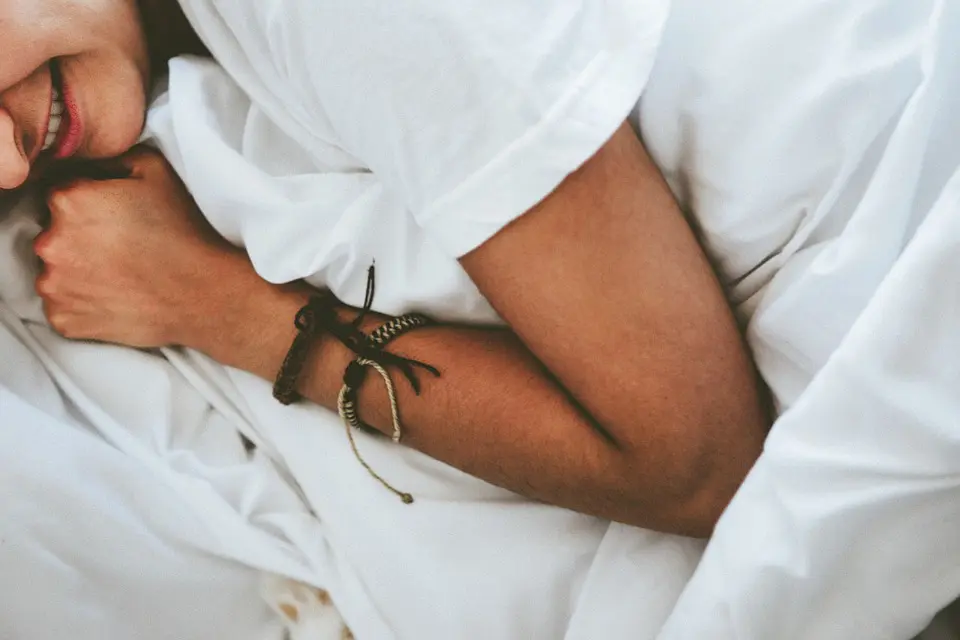Brace yourselves for some radical news:
Sleep is really good for you.

(Pixabay / StockSnap)
Let’s say that a little louder for those in the back that couldn’t hear. Sleep is really really good for you. Here’s what sleep does:
- Reduces stress
- Improves memory
- Boosts immune system
- Lowers blood pressure
- Regulates hormones and a healthy weight
- Speeds up healing
- Improves brain function
It sounds like a commercial for some miracle drug, but without that long list of possible side effects spoken in quiet and quick undertones. Sleep is a magic pill, but sometimes it can be a hard bottle to open. Lots of things can get in the way of a good night’s sleep. There a few things you can do to help good sleep happen.
Disconnect
The blue light of screens plays funny tricks on brains. We are wired to sleep when it is dark and wake up when it is light. Cavemen weren’t tempted by scrolling through a few more funny memes before bed. They were just glad the tiger stopped chasing them because it got dark. So, their brains settled right down for slumber. The computer screen, however, sends your brain the signal that it is still daylight so it thinks there is still work to be done. It doesn’t care that you are lying in bed. So, you can’t blame your brain for spinning if you set it in motion two minutes before closing your eyes. Avoiding screens for 30 minutes before bedtime will help everything wind down.
Watch what you Eat
This isn’t a nutrition article, but what you eat or drink has a great effect on your quality of sleep. Eating or drinking too close to the bedtime hour makes it harder for your body to fall asleep since it will be working hard on digestion. Drinking water before bed might not make it hard to fall asleep, but it can cause problems in staying asleep. Alcohol is a tricky one. It can make you drowsy, so it seems like an obvious choice before sleeping, but the brain is very busy while you are sleeping. Alcohol inhibits all that wonderful brain recovery work while you are sleeping so while your eyes might stay closed for a good number of hours, alcohol can make those hours less effective.
Build a Routine
When we are trying to teach children “how” to sleep, we create routines: a bath, a book, a song, a cuddle, etc. That routine is the foundation of a good night’s sleep. Some kids can’t drift off to sleep without it (which is why they may insist that you read them “Goodnight, Moon” every single night). Our bodies might get bigger, but our brains still respond well to the idea of a routine. What helps you calm down? Create a routine that starts about 30 minutes before the time you hope to start sleeping. Lower the lights, read a book, listen to soothing music, play a quiet game, work on a puzzle, color—anything that will help your body recognize that the time for sleep is coming.
Speaking of Routine. . .
Your brain isn’t the only part of your body that benefits from a good nighttime routine. As you are planning out a nighttime routine, build in time for your teeth. Here are a few things to include in your nighttime dental routine to make sure you keep waking up to the smile you want:
Brush, Floss, Rinse… or Floss, Rinse, Brush
There are different ways to approach these key basics for taking care of your teeth. The traditional order is to brush, floss, and then use mouthwash. Some dentists have suggested flossing first, then rinsing, and ending with brushing without rinsing with water. This order keeps the toothpaste and its strengthening fluoride in contact with your teeth for a longer time. Talk to your Utah family dentist and see what they think. What matters most is that you do all three!
Scrub the Tongue
Make sure that your tongue gets cleaned while you are scrubbing everything else! It’s like a trampoline park for bacteria, and it needs a good scouring before you settle in for the night.
Stop the Grinding
If you are dealing with headaches or a sore jaw, then you might be grinding your teeth at night. This can often be a result of stress, and so a regular, soothing, nighttime routine might help end that habit. However, habits are hard to break and grinding can cause real damage to your teeth. Using a mouthguard at night can help. You can buy relatively cheap over-the-counter mouthguards, but you will get what you pay for, and these can often be uncomfortable. We can create a mouthguard from a mold of your mouth that will be comfortable. There will be an adjustment period, but in time, you won’t notice it all, and it can save you pain and money.
The magic pill of sleep is the cheapest prescription you’ll ever have filled, and you don’t even have to wait in line or get out of your pajamas. Pajamas will actually help the prescription work. Unplug, unwind, and get you (and your teeth) ready for a wonderful night’s sleep. Sweet dreams!
